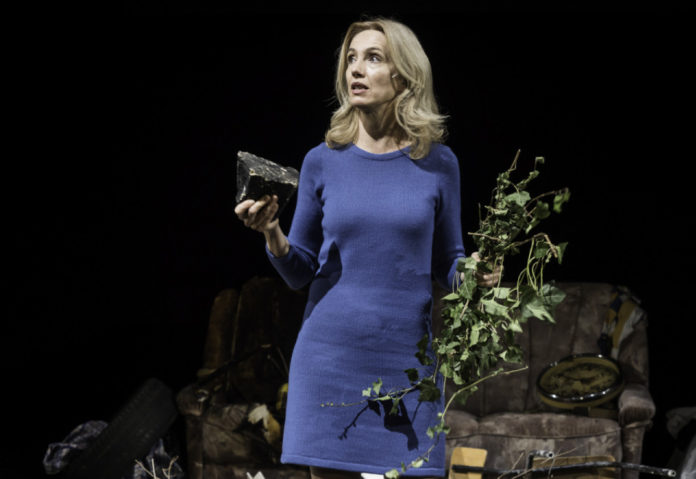
19. – 28.08.2020
The Salzburg Festival is celebrating its 100th anniversary this year. Throughout this century, one theater play has remained the central constant of the festival. Hugo von Hofmannsthal’s Jedermann: The play about the life and death of a rich man.
At the hundredth anniversary of the festival even death is now emancipating: theater maker, author and sociologist Milo Rau together with Swiss actress Ursina Lardi is developing and staging the production “Everywomen” for this this year’s Salzburg Festival.
Milo Rau is known for beeing one of the most political theater makers in Europe. His works are often located in a transition area between political activism and theater. When Milo Rau is doing theater, he looks exactly where most others like to look away: from the Congo wars to Anders Breivik’s world of thought, the conviction and execution of the Ceausecou couple to the crimes of the child murderer Marc Dutroux. Critique of capitalism and criticism of the prevailing conditions are constant basic themes of his work.
The production “Everywoman” picks up on the central motif of Hofmannsthal’s Jedermann: Death that enters everyone’s life. “With us it is “Everywomen”. We look at it from the perspective of a woman, ”says Rau, who develops and directs the play together with Ursina Lardi, who will also play the main role. Lardi and Rau have worked together on similar projects before. As for instance in the production “Mitleid. Die Geschichte des Maschinengewehrs”, which Rau and Lardi developed on joint research trips along the refugee routes in the Congo.
The duo originally wanted to develop the Salzburg “Everywomen” production in Brazil, on an occupied plantation. But then Corona turned all over and they started the project from scratch. “We asked ourselves: What do we actually have to do with death today,” says Rau. “We joined with a woman who is very sick and doesn’t have much time in this world. Together with her we developed this play. So there are two “Everywomen”. One in videos, we made with her. And one on stage: this is Ursina. The next question we asked ourselves was: what is the role of art in it? Today there is no longer a God for most who can redeem us. “
Hofmannsthal’s Everyone wraps the “death of the rich man” in an allegory-filled mystery-play determined by christian morality. “Hofmannsthal wrote his play right after the First World War, in the period of the Spanish flu, facing the total fiasco of this great war. I think, the moment he decided to pick up this old and bulky mystery play from the 16th century, he had basically lost everything, ”says Rau. “Today we have a cult of life and a society that could be described as a theater of death avoidance,” says Rau, “and I think these rituals like the yearly Jedermann in Salzburg are actually central symbols for it.” Because the allegorical figures from death or mammon to the devil make it easy for us today to walk away from the death in a Jedermann performance and to happily enjoy the prosecco afterwards.
Nevertheless, Rau does not want his “Everywoman” production to be understood as a simple mirror for the elites gathered in the Salzburg Festival audience. “I think the big mistake of so-called political theater is that you go into such contexts, then use and criticize them. That is absurd. I never do that. That is of no interest to me, ”emphasizes Rau. “I see this production bigger and more structural. I was really interested in this existential question. Ursina and I just didn’t want to avoid it: What about this death? “Everywomen” is not a political play. Not an allegorical play either, as with Hofmannsthal. It is an associative survey of these two women about their lives. “
For Milo Rau, the collaboration with the deathly ill woman, who will appear in the play in the form of videos, was particularly formative: “I learned two things. For one thing: I have the feeling – she is an educator – that she can look back on a life that really made sense. That is also a central motive in Hofmannsthal’s play. And the other point is that you also become aware of this existential fact of your own death. Which also means that when assessing what is important and what is not, you may also develop a new form of gentleness. As someone who has worked very politically for 20 years, you suddenly realize that other things also count. In a sense, you discover Jedermann in yourself. A central message that arises from this is that meaning only comes from life in community. I don’t think anyone can live on his own. That’s not how people work. “
Everywoman
19. – 28.08.2020
Salzburger Festspiele
Various locations
www.salzburgerfestspiele.at











